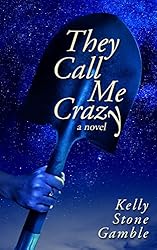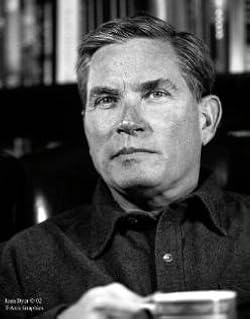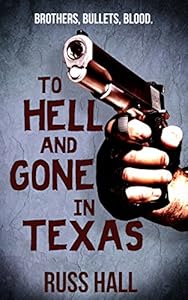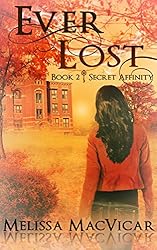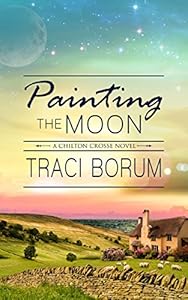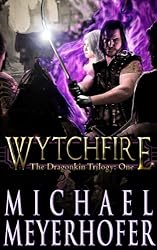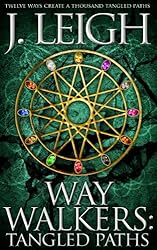Today we're pleased to feature our KBoards interview with Russ Hall, an accomplished and versatile author whose works include mysteries, thrillers, westerns, poetry, and nonfiction books. He's been awarded the Sage Award (for mentoring mystery authors), and the Nancy Pickard Mystery Fiction Award for short fiction. He also won First Place in the Austin International Poetry Festival. We asked Russ to talk with us about his most recent novel:
To Hell and Gone in Texas.
The blog tour for
To Hell and Gone in Texas is underway now -- enter for prizes with the form at the bottom of this post.
Now, on to our conversation with Russ!
Q. Welcome to KBoards and congratulations on the new book! In a few words, how would you describe your novel for our readers?
To Hell and Gone in Texas is a “swept-away” thriller book, where everyday people like you and me get suddenly into a situation that is over our heads and we must deal with it. Al and his brother Maury haven’t spoken to each other in twenty years, but they’re going to have to soon when they are swept into the vortex of the Texas drug scene and come up against one of the fiercest cells of the Mexican mafia. Maury’s life as a lady’s man is in stark contrast to Al’s woodsy life as a retired detective. Yet they’re brothers, and blood will have its way, especially when others seek to spill it in the brutal style that is becoming their trademark.
You're an accomplished writer, with at least fifteen published fiction books as well as numerous non-fiction works. What did you enjoy most about writing this latest book?
Since this was a first in a series, discovering new characters is always a joy. Bonnie cracked me up as did typical Austin-area characters like Pinky and Boo. Getting to know Al and Maury was a psychiatric treat. Their opposing values and wants made for some telling contrasts, even though I did cut out a great deal of backstory on them I’ll save for some other book. Fergie was a cypher at times, which is what I was going for with her. Researching a book is always fun for me, and learning more about ICE and the cartels led me down some dark paths. But the real joy was when it all came together as a tight, engaging story that leaves the reader with a thing or two to think about.
Much of your past work has been through large publishing houses like Harlequin Worldwide Mystery and Leisure Books. To Hell and Gone in Texas was published through Red Adept Publishing. How would you summarize your experience with RAP?
There are changing winds in the publishing world. The number of sales venues has diminished at an astonishing pace, so the big imprint houses have been caught from the blind side and many have failed to keep up with how to get their books out there now that thousands of small indie bookstores have closed as well as big chains of brick-and-mortar stores like Border’s. While they thrash about trying to relearn the rules of what works and what doesn’t in this changing sales environment, a few smaller imprints have leapt into the void and acted quickly to gain momentum for books that would have never received marketing support from bigger houses. They use social media and strong review programs and experiment with fresher promotional opportunities. That is what first attracted me to what was going on at Red Adept.
From another perspective, I doubt there is a publishing house in America that provides the varied degree of developmental support that Red Adept does—content editing, copyediting, fact-checking, and proofreading occur at a level far above most houses. For a first-time or early author who can benefit from getting an objective hand on his/her book, this is ideal. Red Adept gets good covers for the books and even sets up a blog tour to generate momentum. The imprint seeks a relationship with authors beneficial to both. For more experienced authors used to having the book pretty much ready to go, some of the attention to the manuscript may feel greater than they are used to, but we’re all in this business to learn. I wouldn’t hesitate to recommend the imprint to first time writers who are a little uncertain about whether they stuck the landing with their book. The people at Red Adept are all nice and their intention is ultimately to make the best book possible.
In the story, we meet lovable, hardnosed, retired detective Al Quinn. What was your inspiration for this main character?
Al Quinn and I are a good deal alike. Like the Blue-Eyed Indian and Esbeth Walters in other books of mine, the protagonist is most often a loner, slightly damaged in places, but perhaps redeemable. Lots of people have experience in relationships and the conflicts and joys of those. I don’t so much, so I play to what I do know. I guess that’s why I don’t write romances. But the key aspect of Al’s experience in the book is disruption. Here he had this picture in his head of living alone and enjoying the solitude. Instead, his estranged brother, a nurse, and someone he dated years ago, get foisted off onto him. Plus some pretty nasty people are out to kill them all in horrible ways. All in all it’s a far cry from the life he’d hoped to savor.
Al's tumultuous relationship with his brother Maury is pivotal to the story. What inspired or influenced that dimension of the book for you?
The puzzle of people quite alike at one level but quite different at another has tickled at me for years—brothers in the Civil War who fought against each other, siblings with different political leanings, and, worst of all, those divided by their good or bad choices in love, mostly bad. I have two cousins, who are brothers, who haven’t spoken to each other in at least twenty years, so the concept was painfully possible. I wanted to explore and understand that phenomenon on the page, pick at the scab, if you will. Every book is a learning experience for an author, a stretching one that may well sting in spots. That’s what I was after in dealing with the complexity and motivations of these two. How do their ambitions, desires, values, and wants compare and contrast? I will add that my brother is nothing like Maury, though I am more like Al than I care to admit.
We like the smart plot and the tense pacing of this book. But perhaps most of all we appreciated the book's sense of "place." The scenes that depict central Texas are compelling. For you, does this book represent something of an homage to where you live?
Most of my books are set in central Texas where I live, and for a few good reasons. When I was sent out to Austin by Harper & Row quite a few years ago I had an anthropologist’s eye for the area. It was different and exciting, the people were friendlier, and, for the purposes of mysteries and thrillers, there was a warm southern ambience that stood in stark contrast to the potential for danger, such as Mexican cartels permeating the illegal activities throughout the area. Still, I seek to show the setting on the page as a positive. People not from Texas get false impressions and I seek to share real ones. While Texas may be flat and desert-like between central Texas and Big Bend, the central part of Texas is marked by rolling hills, rocky cliffs, and brightly colored wildflowers in the spring. I like a book to take a reader someplace he/she may not have been before, someplace faraway and different. But even the locals here like to read about the Texas settings. One reader told me a novel of mine sent her hustling into Austin to get a Hut’s hamburger. I like it when readers can feel, sense, and smell during a scene.
The book contains a wry and subtle humor, which contrasts well with the suspenseful and perilous parts of the story. From a curious reader: did you find yourself smiling as you wrote certain parts of the book?
Oh, yeah. Writing a book has to entertain me if it’s going to entertain you. I once confessed to my friend Mike Blakely that I reread my books, like the Blue-Eyed Indian ones, which sometimes make me laugh out loud or at other times put a lump in my throat. He said, “I don’t believe I’d tell people you read your own books.” I said, “Well, you sing along when your songs are playing on the radio.” Had him there.
That's a good comeback! Readers and reviewers have described To Hell and Gone in Texas as "fast-paced," "high-action," and "deftly-plotted". Is there any review that has been particularly meaningful for you?
Reviewers have been by and large kind with this book. I had an Esbeth Walters novel once about which Kirkus Reviews, I believe, said, “Elmore Leonard meets Agatha Christie.” I suppose that was because they couldn’t tell if it was a cozy or a noir story, a mix I had intended. In
To Hell and Gone in Texas there’s no Agatha Christie. It’s all Elmore Leonard. One reviewer commented that this book should be made into a movie. I’m all for that if the right opportunity rolls along.
The opening scenes -- shocking and intriguing -- really pull a reader into the story. It reminded me in some ways of Cormac McCarthy. Who are a few of your favorite authors?
I’ve, of course, read all of Cormac McCarthy. I live in a house where every wall is covered with book shelves. Twain, Steinbeck and Hemingway are among the literary choices. In the mystery/thriller genre I’d give top picks to John Burdett, Robert Campell, Raymond Chandler, Colin Cotterill, Arthur Conan Doyle, Dashiell Hammett, Stuart Kaminsky, Dennis Lehane, Georges Simenon, Ross McDonald, Ross Thomas, and many more. The point being that if you’re going to write you need to read a lot, both are joys to me that make this avocation a happy choice for me.
Many of our KBoards members are writers as well as readers, so let's turn to a few "author-type" questions. You're amazingly prolific. What's your secret sauce for producing so much quality writing?
I get teased by story ideas everywhere. I can’t read a paper or buzz through the internet without tripping over story ideas. It’s just a matter of researching and assembling a cast of characters who don’t necessarily get along well and I’m galloping off to a story. While I love researching books, I will say that my mantra there is: “You can never research too much. But you can put too much of the research on the page.”
As for aiming for quality, it’s almost always the middle chapters of a book that sag. I cut my writing teeth on short stories, so one trick of mine is to pull each chapter out after the book is written and hone that chapter as if it was going to have to stand alone as a short story, with the detail, density, and the completeness of complex characters in varied stages of personal development.
As for writing a lot of books, it’s what I do every day. I get up, I write. Sometimes I edit and revise, which I typically save for afternoons. The good writing juice for me is in the morning. People make a lot of excuses why they can’t write on a given day—it’s like skipping the gym. I don’t usually let myself off the hook.
You have experience with editing as well as writing. Is it difficult as an author when you're on the "other side of the desk"?
Actually, I get a bit schizophrenic here. I write the books and the ideal thing to do would be to put them in a drawer for a year, then come back and edit. Barring that, I print out the manuscripts and go to a coffee shop or to the marble table out back or some spot where I am no longer the author but am the tough love editor. Marking a MS up on paper with a red pen helps me. That isn’t to say I’m done writing at that stage. Sometimes I loop back to make adjustments or add entire chapters, or cut them. It’s all part of a process. I didn’t like revision or writing a synopsis when I started, but have pushed myself to find ways to enjoy those parts of the whole process.
As one of the few authors we've interviewed with a graduate degree in creative writing, can you tell us how that experience shaped your craft?
I don’t know that I’d recommend it, unless you want to get beat up for a year or so. Even the top writing schools themselves, like to one at the University of Iowa, have come to the conclusion that creative writing can’t be taught. If a person has the disposition and desire to write that person can be mentored, steered, nudged, helped to write better works. But the fire in the belly outweighs the structure of a university program. E.B. White once spoke to a crowd of students at Columbia, saying, “How many of you want to be writers?” When almost everyone held up a hand, he asked, “Then why aren’t you home writing?” I think the real writing comes in the lonely nights and long mornings spent immersing in the details of a story that grips. As for the learning that leads to constant improvement, that often comes the school of hard knocks of sorting through what works. Read a lot, write a lot.
You have a strong following of Western fans as well as mystery fans. Tell us about some of the benefits for an author in joining writing organizations or communities, like Mystery Writers of America and Western Writers of America.
Well, there are the awards. But beyond that is the common cause of people doing the same thing you’re doing. There’s nothing wrong with small writer groups. But the organizations offer a mingling of minds, promotion opportunities, and a number of other benefits. Some of the other organizations, like Sisters in Crime and statewide organizations can also be very helpful. Perhaps one explanation is that many writers are introverts but they seem to mind less mingling with birds of their own feather. Also, and this should go on any book proposal, it’s part of a platform, and platform is a word publishers are keener than ever to hear these days. How many potential readers are you associated with on a regular basis? Do you give public presentations and workshops. Associations extend platforms in a positive way, and platform is getting to be the buzziest of the buzz words. But don’t just join for that. Join for the camaraderie with people fighting the same fight as you in those long lonely nights and earlier mornings turning a jumble of words into tightly tuned works that entertain.
We're guessing that you have multiple books cooking simultaneously. True? And if so, how do you manage that challenge?
I do work on multiple projects, but when it comes to the creative part of putting together a rough draft or drilling deep in revision I take on an aspect I call the aircraft carrier technique. One plane in, one plane out. Picture an empty desk. I put one book on that and work as long and hard and as deeply as I can. I need that immersion into the plot, lives of the characters, and chiseling the details of each scene. Once I’m deep in a book, and the characters have come to life, they talk to me when my motor cortex is occupied by mowing the lawn, taking a shower, or driving the car. They let me know when what I’ve put on the page isn’t the organic way they would have acted or spoken. But I can get that deep usually only one book at a time.
Any hints on what we might see next from you?
I have already written the next two books in the Al Quinn series and suspect there will be more. I have three books written in a series featuring a 15-year-old detective who rubs everybody the wrong way. That was a hoot to write and I hope to get those out. I’ve got a couple of short story collections I’m polishing, and one book of poetry that’s kind of a bucket list item. I’m also bringing out more westerns with two publishers. I’d like to work on one mainstream big book someday that turns me inside out some, stings to write in places, but holds together as a compelling story. Other than that I’m just sitting on my hands around here.
That's a lot for us to look forward to! Russ, it has been a privilege to interview you and we've enjoyed your book. Thanks for being with us today on KBoards!
To Hell and Gone in Texas is available now to download to your Kindle. And be sure to check out the
To Hell and Gone in Texas blog tour celebrating the book's release - for interviews, reviews, and a chance to win SWAG from the book's publisher, Red Adept Publishing.
a
Rafflecopter giveaway




